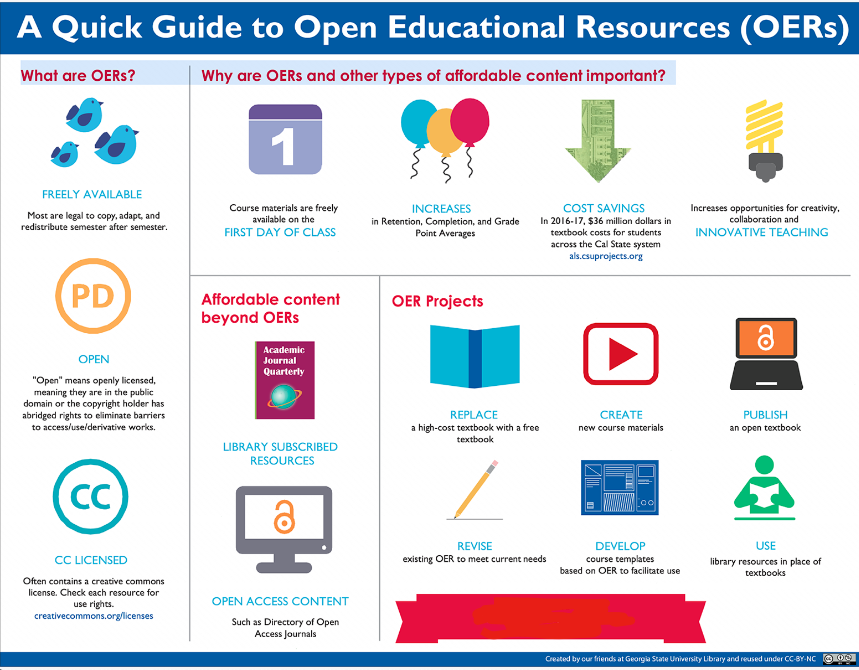Taking a deeper dive into the concept of OERs and OER enabled pedagogy has been not only useful in terms of helping my understanding, but also altered my perspective on my post secondary experience so far. I had mentioned in a blog post earlier that with each year in post secondary, my textbook requirements have gone down significantly. I am reading a lot more free resources online, however I don’t recall using many student created artifacts to support my learning until this year.
I really like the soap sculpture story, it helped me to not only envision a different perspective on education but also to understand it in more simpler terms. It reminded me of one of the courses I am in now. I mentioned this in one of my other blogs as well, but in this course we are given 3 very open-ended projects on media for learning, that are almost entirely led by students. After creating our project, or I guess it could be considered an artifact, peers then can review and critique it. In this critique process, most of the time they will make suggestions for improvement, but follow up with resources they’ve found to help with the process. Simultaneously during this time, by reviewing my project they have learnt about a new medium for learning and what kind of projects they can create on it. I believe all, if not most, of the students in the class are going into education so these media can look like whiteboard animations, creating games for learning etc. Additionally, the projects that are created are an open resource as they are posted out for anyone to take a look at. I really enjoy this style of learning, as I feel like the hours I put into these assignments are more valuable in comparison to creating a disposable assignment.
I found this chart when I did some further researching that I thought I would share:

I appreciated the table on distinguishing between the different types of assignments, as well as the test. They really provided some clarity that was once a grey area for me. I was a little unsure if the course I was referencing above could be categorized under OER enabled pedagogy, but all of the answers were yes which solidified that it was. I hope that going forward, I have more courses that are labeled as OER enabled pedagogy.
Lastly, I linked a David Wiley TedTalk on a previous blog post, so I was excited to see he was the author of this week’s reading. I decided to see what other videos were out there of him and came across this one. This one is a bit lengthy, but super interesting. I recommend giving it a watch if you have the time.
Wiley, D. & Hilton, J. (2018). Defining OER-enabled Pedagogy.International Review of Research in Open and Distance Learning, 19(4).
hannahrochford
August 22, 2021 — 6:40 pm
Hi Kiana,
Wow, something that really stuck out to me in your blog was what you said about “I feel like the hours I put into these assignments are more valuable in comparison to creating a disposable assignment.”
I completely agree with this statement. I feel as if I am more motivated when doing these assignments that others will see what I post and hopefully benefit from at least one thing I have said. It makes the class more meaningful. I feel like I benefit so much from hearing other perspectives and ideas. We all are different, have different opinions, and think differently. Everyone takes something different from what they are reading so it is nice when I am reading our blogs I am able to learn so much more.
Great diagram as well!
Thanks, Kiana!
Kayla Krug
August 23, 2021 — 2:34 pm
Hi Kiana,
Thank you for sharing your thoughts and even linking extra resources for us to learn from. I really enjoyed the chart you found. It provided a lot of clarity for me around the topic of OERs and the importance of them. I even saved the image so I can look back to it in the future!
Reading your blog posts over the last month have been very beneficial for me and have enhanced my learning on the topics covered in this course. Thank you!
Kayla
rianneyuen
August 23, 2021 — 2:53 pm
Hi Kiana,
I agree with Hannah, you have some great points and thoughts! I agree with the feel of putting a lot of time and effort into one assignment then having no value for it after. That’s why OER-enabled pedagogy allows for your work to be more valuable after the assignment is complete. Like our blog posts. After we are finished writing them, we still comment and reply. It is not just write it and never look at it again.
Thanks for sharing!
emilytrelford
August 23, 2021 — 3:40 pm
Hi Kiana!
Thanks for your comments this week. Just like Hannah, your comment about how the hours you put into these assignments feel more valuable than disposable assignments really resonated with me. I couldn’t agree more! I feel that when we are tasked with researching our own questions, and being able to write about whatever we want to based on a reading feels a lot more rewarding. I always feel that I have retained more knowledge when I am able to put a more meaningful effort into an assignment.
I also really like the diagram that you included here. I think it is easy to understand, and a great reference image for if we are having trouble deciphering between whether a resource is an OER or not. Thanks for sharing! 🙂